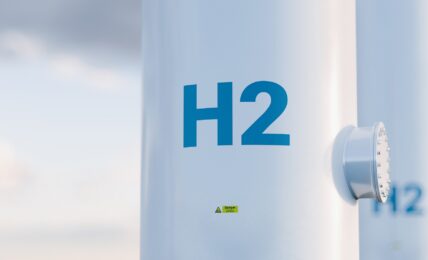Microsoft announced the launch of a new pilot project with Irish state-owned energy company ESB testing the use of green hydrogen as part of the tech giant’s portfolio of clean energy solutions aimed at decarbonizing its growing data center footprint.
Under the new agreement, Microsoft’s data centre power control and administration building in Dublin will be powered by zero emissions green hydrogen power, supplying up to 250 kW of energy to Microsoft’s Dublin campus over an eight-week period. The agreement marks the first time that hydrogen fuel cells will be used to provide electricity to a Microsoft data centre in Europe.
The agreement comes as Microsoft, along with its tech giant peers, look to address the growing emissions impact of their rapidly expanding data center footprints. While Microsoft has set 2030 goals to become carbon negative and to reduce Scope 3 emissions by more than half compared to 2020, the company recently reported that Scope 3 emissions in 2023 were actually more than 30% higher than in 2020, driven largely by significant growth in data centers to meet increasing demand for AI computing power. Microsoft has also put in place a “100/100/0 clean energy goal,” with the company targeting having 100% of its electricity consumption, 100% percent of the time, matched by purchases from zero carbon energy sources by 2030.
Microsoft said earlier this year that it was launching a company-wide initiative to identify and develop measures to address its Scope 3 emissions challenges. The company has signed a series of renewable energy deals over the past several months, including an agreement with Brookfield for the development of more than 10.5 GW of new clean energy capacity over 5 years, and recently announced an agreement with Constellation Energy to purchase nuclear energy from a restarted reactor at Three Mile Island in Pennsylvania.
Lavinia Morris, General Manager, Microsoft’s EMEA Data Centre Operations, said:
“This pilot project is another important step in our journey to transition to carbon-free electricity supply for our data centres, buildings, and campuses around the world. As we look to advance a more sustainable future, we hope to build on the success of this pilot project and continue to find innovative ways to decarbonise our operations.”
Hydrogen is viewed as one of the key building blocks of the transition to a cleaner energy future, particularly for sectors with difficult to abate emissions, in which renewable energy solutions such as wind or solar are less practical. ESB’s Hydrogen Fuel Cells, designed to replace diesel generators, convert stored green hydrogen to electricity, with water as the only by-product, while also producing no carbon emissions or harmful local air pollutants.
Jim Dollard, ESB Executive Director, Generation and Trading, said:
“ESB believe green hydrogen will play an important role in the net zero energy system of the future. We’re delighted to be working with Microsoft on this innovative pilot project that will showcase the potential for green hydrogen as part of zero emission electricity generation for data centres.”


